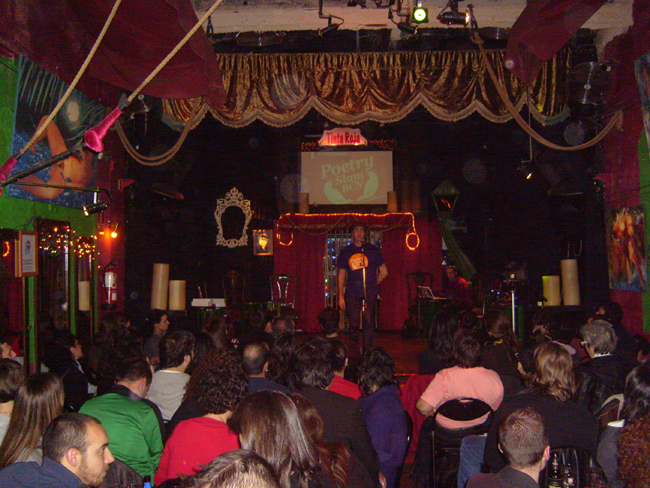My main goal in moving to Spain last year was to achieve fluency in Spanish. I’m starting to think ‘fluency’ is a fleeting, indefinable beast, but I’m giving it a go anyway. I started teaching myself when I was in single figures and at this rate will still be learning when I’m 100.
Nevertheless, I thought I would commit to html what I’ve learned so far – do let me know if you’ve got some top tips of your own.
1. Park perfectionism
Before you get into the nitty gritty of indirect object pronouns and the vagaries of the subjunctive mood, there’s an overriding principle I think it’s worth highlighting. Mainly because it’s taken me over 30 years to realise it.
I know it’s excruciatingly embarrassing to stumble and mumble your way through a conversation in a non-native language. I know it sounded a lot better when you practised it in your head or 20 years ago in school when it all seemed so easy. And I know you feel like a fool, back at a basic level of communication with members of society, pointing at a chair and saying “¿Cómo se llama?”
But I’ll tell you something – you don’t have time for these hindrances. Life is passing. How many people have you heard say they would love to be able to speak a foreign language? And how many of them actually try? Perfectionism is crippling. Fuera. Worried everyone will point and laugh at you along the way? Funnily enough, in my experience, they don’t. In fact, if you’re an English speaker, they’re usually just delighted you’re actually bothering.
2. Vocab, vocab, vocab
As a language, Spanish takes no prisoners. Where other countries are content with subtitling foreign films, there are the Spaniards, gaily overdubbing like you wouldn’t believe.
I came back from Scotland after Christmas to find the film ‘Downfall’ on TV, depicting Hitler’s last weeks in office. I’d seen the original film just a few months before for the first time, in German with English subtitles. Back in Barca, I was staggered to see that even a film with a cast of characters from the Third Reich didn’t escape the Spanish dubbing treatment – there was Hitler, turned into a fricative fiend, rolling his r’s and aspirating his j’s with the best of them.
This linguistic supremacy extends to the pronunciation of foreign words. Here, Spaniards don’t mess around. The breathtaking epitome of this mentality has to be the advertising currently doing the rounds in Barcelona for Les Miserables – known, universally, as Les Miserables. Except in Spain, where the definite article is subtly substituted for the Spanish. Likewise Pinochet, a French name, gets turned into Peen-oh-chette, and you really don’t want to hear what they do to Jamiroquai.
The good news is, as a Spanish learner, you get to take advantage of all this. Spanish is everywhere! And what you need, more than anything, are the bricks that the mortar of grammar holds together – the vocabulary to be able to contribute meaningfully to a conversation.
How do you acquire vocab? Interrogate everyone and everything. Don’t discount a single word as superfluous. For example, a few months ago I was listening to a Spanish podcast, where the word of the day was ‘arandela’, meaning the washer on a tap. Pah, I thought, as if I’m ever likely to need that. Till a week later I was round at a Spanish friend’s flat and she explained that the bathroom taps were out of service because the washer had gone.
Some things that I’ve found particularly useful are:
- Annoy the hell out of everyone around you by pointing at things and saying ‘what’s that called?’ They’ll quickly get pissed off but you’ll learn tons, honestly.
- Transcribe Spanish songs without looking up the lyrics online. See if you can work them out.
- Watch Spanish TV with the subtitles on. Keep a notepad close by so you can jot down the words you’re unfamiliar with.
- Talk on the phone as much as you possibly can. It’s heinous but will do wonders for your confidence.
- Devour books of synonyms. My little Spanish synonyms book is antediluvian but I’m still learning from it.
- Buy Spanish cook books and cook nothing else for a month. You’ll get really sick of chickpeas but will never forget the Spanish word for aubergine as long as you live.
- Go to a poetry slam! I went to my first ever one in Poble Sec last week and was amazed at what a great source of vocab it was. Take a pen and paper and I guarantee you’ll come out with interesting new additions to your linguistic arsenal.
3. Do language swaps with natives
Intercambios, as they’re called in Spain, are a bit of a hit or miss thing, and I’ve done more than my fair share of them in my time. I started off a couple of years back in Edinburgh and have kept it up in Barcelona, as a way both to practise Spanish and to meet people.
Sometimes, it has to be said, this doesn’t go well. There will be people you despise within the first three minutes. There will be people who despise you even faster. And, of course, there will be people who are convinced they’re on a date, despite any number of social signals to the contrary.
(If you’re very lucky, there may even be people who turn into friends for life, and who you could swear you knew in a past one. ¡Hola Cris, te quiero!)
If you’re worried about the possibility of meeting random lunatics, you might want to try out a group language swap meeting. Big sites like meetup.com are also good for finding local groups. Or, if that sounds too much, you could always arrange to chat to a language partner over Skype. (You even get to sit in your pyjamas at the same time.)
If you feel your perfectionist hackles rising at the mere prospect of exchanging flawed foreign conversation with a real human, try to talk yourself down from the ledge. Remember – you’ve had the balls to meet up with a complete stranger, strike up conversation in a foreign language and see what comes of it. While most people are at home watching the telly.
4. Fake it
This is another thing I really wish I’d realised years ago. I’ve sat at work here for months now, jaw virtually on the floor, listening to people from other parts of Europe speak in the most amazing Spanish. If only I could sound like that, I think, maybe after 15 years here. But when I listen closely, I find that I know every single word that they’re saying, and am confident I could say them too. So what do they have over me?
Posture. They wave their arms around like a Catalan wifey bartering over her Saturday bacalao at la Boquería. They’ve got the patter, as Glaswegians would say. Complete with body language – downturned lips, shrugging, gesticulating like their lives depended on it. And what a difference this makes! I have no idea of the percentages, but I bet there’s a stat somewhere that says verbal communication is only X percent of what your listener perceives. So go on, throw caution to the wind, and start mimicking both intonation and body language. Sure, initially you’ll feel daft but you’ll soon get over it when you see how much cheaper the bacalao is…
5. Don’t forget Extremadura! And Quito and Buenos Aires and Havana and Chiclayo…
One of the best things about the fact you’ve chosen to learn Spanish as opposed to, say, Finnish, is the global passport that lands in your lap by default. Wherever you are in Spain, make sure you’re exposed to as many different regional accents as possible. Seville isn’t Tarragona isn’t Vigo – the differences are really striking. And if you can master South American Spanish, diverse as it is, the world is truly your oyster.

GuiriGirlinBarca is written by native Scot Julie Sheridan, who left Edinburgh’s haar-stricken hills for the slightly sunnier shores of Barcelona in April 2011. Armed with a big red emigrating suitcase (called La Roja) she arrived in the Catalan capital without knowing a soul, or indeed any Catalan. Her blog is an honest account of the ups and downs of life abroad as a single woman, including now not to get stalked by men and how to avoid unfortunate incidents with hamsters on bank holidays.












